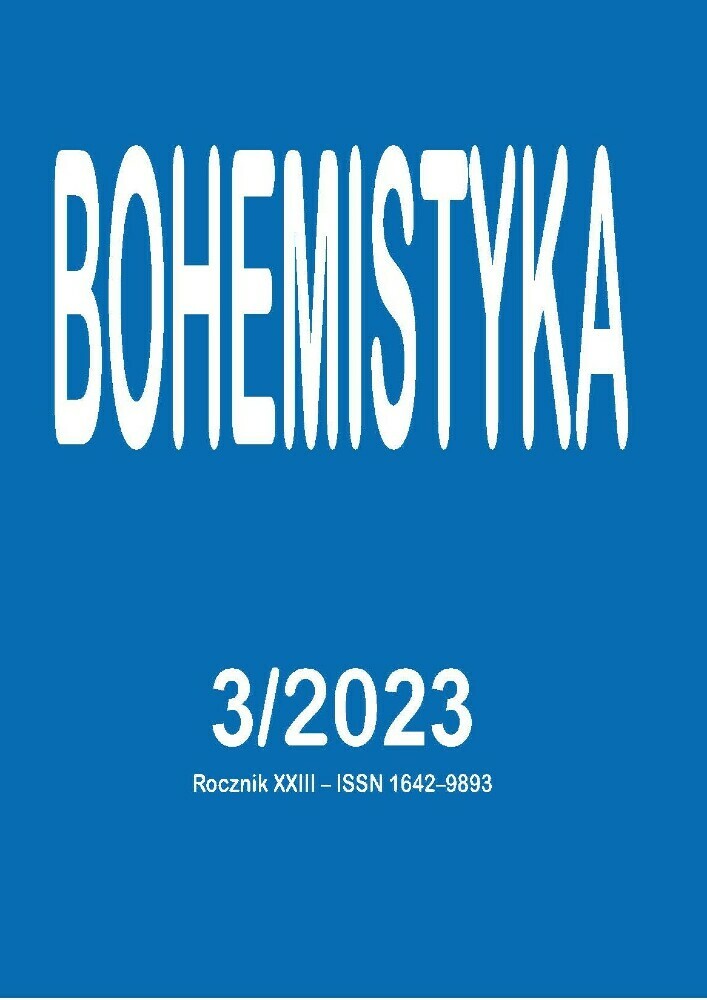Abstrakt
The aim of this article is to explore the way in which the literary voice expressing the experience of the loss of maternal love can be constructed. In the Western cultural mainstream, the notion of the sanctity of the mother-child bond strongly prevails, which results in the normative expectation of mothers to identify entirely with the maternal role. Deliberations are based on the analysis of the autobiographical novel Rok kohouta by Czech writer Tereza Boučková. The article tries to answer the question whether providing testimony about such a painful experience is more difficult, or perhaps easier, in the case of adoptive mothers
Bibliografia
Ali, Suki. (2014). Multicultural families: Deracializing transracial adoption, Critical Social Policy 34 (1), pp. 66–89. DOI: https://doi.org/10.1177/0261018313493160
Badinter, Elisabeth. (1981) Mother Love: Myth and Reality, New York: Macmillan.
Barn, Ravinder and Kirton, Derek. (2012) Transracial adoption in Britain: Politics, ideology and reality, Adoption and Fostering, 36 (3–4), pp. 25–37. DOI: https://doi.org/10.1177/030857591203600304
Beck, Ulrich and Beck-Gernsheim Elisabeth. (2001) Individualization: Institutionalized Individualism and Its Social and Political Consequences, London: SAGE Publications. DOI: https://doi.org/10.4135/9781446218693
Boučková, Tereza. (2007) Rok kohouta. Praha: Odeon.
Butler, Judith. (2002), Antigone’s Claim: Kinship between Life and Death, New York: Columbia University Press.
Connerton, Paul. (2008) Seven types of forgetting, Memory Studies, 1 (1), pp. 59–71. DOI: https://doi.org/10.1177/1750698007083889
DePaulo, Bella. (2015) How We Live Now: Redefining Home and the Family in the 21st Century, London: Atria.
Eagleton, Terry. (2003) After Theory, New York: Basic.
Faulkner, Sandra L. (2014) Bad mom(my) litany: Spanking cultural myths of middle-class motherhood, Cultural Studies – Critical Methodologies, 14 (2), pp. 138–146. DOI: https://doi.org/10.1177/1532708613512270
Freud, Hendrika C. (2011) Electra vs Oedipus: The Drama of the Mother-Daughter Relationship, London: Routledge. DOI: https://doi.org/10.4324/9780203845929
Hansen, Elaine Tuttle. (1997) Mother without Child: Contemporary Fiction and Crisis of Motherhood, Berkley: University of California Press.
Hays, Sharon. (1998) The Cultural Contradictions of Motherhood, New Haven: Yale University Press.
Iser, Wolfgang. (1993) The Fictive and the Imaginary: Charting Literary Anthropology, Baltimore: Johns Hopkins University Press. DOI: https://doi.org/10.56021/9780801844980
Janoušek, Pavel. (2008), Tereza Boučková: Rok kohouta, Tvar, 19 (10), p. 3.
Jirků, Irena. (2006) Rozhovor s Terezou Boučkovou: Sedmnáct let s dětmi odjinud, Marianne: The Czech Edition, 3 (2), pp. 20–21.
Keck, Gregory C. and Kupecky, Regina M. (1995) Adopting the Hurt Child. Colorado Springs: Pinton Press.
MacDonald, Mandi and McSherry, Dominic. (2011) Open adoption: Adoptive parents’ experiences of birth family contact and talking to their child about adoption, Adoption & Fostering, 35 (3), pp. 4–16. DOI: https://doi.org/10.1177/030857591103500302
Miall, Charlene E. (2000) Adoptions as family form, Family Relations: Journal of Applied Family & Child Studies, 49 (4), pp. 359–362. DOI: https://doi.org/10.1111/j.1741-3729.2000.00359.x
Miller, Daniel. (2017) Christmas: An anthropological lens, Hau: Journal of Ethnographic Theory, 7 (3), pp. 409–442. DOI: https://doi.org/10.14318/hau7.3.027
Palacios, Jesús, Rolock, Nancy, Selwyn, Julie et al. (2019) Adoption breakdown: Concept, research, and implications, Research on Social Work Practice, 29 (2), pp. 130–142. DOI: https://doi.org/10.1177/1049731518783852
Payne, Michael and Schad, John. (2003) Life After Theory, London: Continuum.
Sell, Roger. (2012) Cultural Memory and the Communicational Criticism of Literature, Journal for Communication Studies, 5 (10), pp. 201–25.
Šanderová, Petra. (2011) Tělesnost jako významný faktor procesu adopce: Kulturně antropologický problem, Prague: Sociologické nakladatelství SLON.
Uhlová, Saša. (2014) O pěstounské péči a adopcích romských dětí: Měli jsme volné místo u stolu, available at: http://www.romea.cz/cz/romano-vodi/o-pestounske-peci-a-adopcich-romskych-deti-meli-jsme-volne-misto-u-stolu [accessed: 2 August 2022].
Večerka, K. (1999) Romové a sociální patologie, in: Romové v České republice, pp. 417–446. Prague: Socioklub.
Wegar, Katarina. (1997) In search of bad mothers: Social constructions of birth and adoptive motherhood, Women’s Studies International Forum, 20 (1), pp. 77–86. DOI: https://doi.org/10.1016/S0277-5395(96)00097-0
Weistra, Sabina and Luke, Nikk. (2017) Adoptive parents’ experiences of social support and attitudes towards adoption, Adoption & Fostering 41 (3), pp. 228–241. DOI: https://doi.org/10.1177/0308575917708702
Zigon, Jarrett. (2009) Hope dies last: Two aspects of hope in contemporary Moscow, Anthropological Theory, 9 (3), pp. 253–271. DOI: https://doi.org/10.1177/1463499609346986
Licencja
Prawa autorskie (c) 2023 Marcin Filipowicz

Utwór dostępny jest na licencji Creative Commons Uznanie autorstwa – Użycie niekomercyjne – Bez utworów zależnych 4.0 Międzynarodowe.





